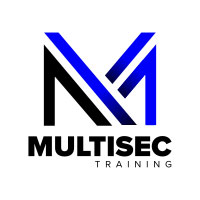In NSW some security guards carry weapons and firearms, however they must possess a firearms licence to do so.
For a security guard to be authorised to carry a weapon and or firearm, when they are working as a security guard, they must first do the CPP31316 – Certificate II in Security Operations with a training organisation that has been authorised by the NSW Police to deliver the qualification.
Once they are authorised to carry a firearm and do security guard work that involves the use of a firearm, they can get a job, say for instance to escort cash.
All security guards can obtain a permit from the Commissioner of the NSW Police Force to carry a baton, however the permit is difficult to get as the security guard must prove toe the NSW Police Commissioner that they have a need to carry a baton. Further they must prove that they have received the correct training to carry and use a baton.
There are no other weapons, such as tasers and handcuffs that security guards could be authorised to carry and use in their role as a security officer.
Weapon Policies for Security Guards in NSW
In NSW, the use of weapons by security guards is strictly regulated and subject to specific guidelines and licensing requirements. The primary authority overseeing these regulations is the Security Industry Act 1997, which establishes the framework for security operations within the state.
Armed Security Guards
While the majority of security guards in NSW do not carry firearms, there are situations where armed security personnel may be employed. Such instances typically involve high-risk environments or situations that require an elevated level of protection. However, the licensing and use of firearms by security guards in NSW are subject to stringent regulations and oversight by the relevant authorities.
Licensing and Training Requirements
For security guards seeking to carry firearms in NSW, they must undergo rigorous training and obtain the appropriate licenses. The licensing process involves comprehensive background checks, assessment of mental and physical fitness, and completion of relevant training programs provided by registered training organizations. The licensing authorities evaluate each application on an individual basis, ensuring that only qualified and responsible individuals are granted permission to carry firearms while on duty.
Unarmed Security Guards
The most common type of security guard in NSW is the unarmed security officer. They are responsible for maintaining a visible presence, conducting surveillance, and providing general assistance. Although they do not carry weapons, unarmed security guards play a crucial role in deterring potential threats and reporting any suspicious activities to the authorities.
Conclusion: In NSW, the use of weapons by security guards is tightly regulated to maintain public safety and minimize risks. While armed security guards are employed in certain high-risk situations, the majority of security personnel in the state are unarmed. The licensing and training requirements for armed security guards are rigorous, ensuring that only qualified individuals with a responsible mindset can carry firearms while on duty. By striking a balance between security measures and public safety, security guards in NSW contribute to a safer environment for everyone.
The Unarmed Security Guard Training Course is held in the Multisec Training Office in Sydney.
The easiest way of obtaining a CPP20218 Certificate II in Security Operations in NSW is to do the course with Multisec Training.
It is the easiest because our course only runs for two weeks, we have the smallest classes in the State, we are the most economical in the State, and we have some of the most talented and experienced trainers in NSW.






